Jason Micheli's Blog, page 67
August 21, 2023
A Modest Proposal for Exorcism

Tamed Cynic is a reader-supported publication. To receive new posts and all content, consider becoming a paid subscriber.
August 20, 2023
A Star Called He

Tamed Cynic is a reader-supported publication. To receive new posts and all content, consider becoming a paid subscriber.
Revelation 9.1-6, 20-21
Writing in the Bulwark in April, columnist Cathy Young reflected upon the one year anniversary of the atrocities the Russian army committed in the quiet suburban town of Bucha.
As Russian forces fled Bucha in hasty retreat, journalists who entered the liberated town encountered the bodies not of soldiers but civilians, “…in charred remnants of cars, in the front yards of homes, in parking lots, in basements—and in mass graves.”Vladimir Putin, his propagandists in the Kremlin and on rightwing platforms, and even the patriarch of the Russian Orthodox Church lied, declaring that “the dead bodies weren’t actually dead,” and accusing the victims of being crisis actors. Possibly, they averred, spinning another falsehood, the dead bodies had been murdered by Ukrainian Nazis after the noble Russian forces had departed Bucha. Along with eyewitness accounts, real-time security camera footage and satellite images attest to the atrocities, not simply murder but rape and torture.
In an anniversary interview, an advisor to Vladimir Zelensky explained how Bucha had been a revelation not only to Ukrainians but to the entire world:
“Bucha was the starting point that transformed our—and the world’s—emotional understanding of this war. That is, at that moment we realized that Russia did not come here to achieve . . . military aims. All those absurdities they talked about. Russia came here specifically, in the twenty-first century, to kill with extreme cruelty. Just look at what happened systemically in Bucha, in Hostomel. . . . Russia built, and came here with, a ready-made system for the extremely cruel murders on a large scale of Ukrainian citizens. And Bucha showed that [reality] for the first time, not only to us but showed it to the whole world.”
A Russian expatriate writer echoed the sentiment, explaining on social media, "It was clear that after Bucha, [this] wasn’t a war intended to make Ukraine do this or that. It was a war of destruction.”
This April, at a grave ceremony in Bucha, President Zelensky framed the horrors of Russia’s invasion in apocalyptic terms.
“When Bucha was de-occupied,” he said, “we saw that the devil was not somewhere out there but here on earth. The heinous truth [of the devil and his minions] was revealed to the world.”
The Ukrainian president is neither the first nor the only Ukrainian to speak in theological terms of the atrocities they’ve seen and suffered. The police chief of Kyiv was on the front line to liberate Bucha. When he entered the razed town, he came upon the bodies of the massacred. “We realized,” he said, “that, in fact, evil had dwelled on this land for a month…whose sole intent was to kill and abuse peaceful civilians.”
Evil had dwelled here, he said.Evil as person.Still more disquieting is the manner in which the devil and his demons manifested themselves. As Cathy Young notes, there is no evidence the war crimes committed in Bucha were the result of a deliberate Russian policy. Rather, by and large, Russian soldiers simply believed the propaganda told to them that the purpose of the invasion was to rid the land of Nazis who were terrorizing the captive populace of Ukraine. They took the lies as truth. And when they discovered the truth was a lie, when they realized the people of Bucha received them not with “jubilant gratitude” but with dread and loathing, the Russian soldiers did not repent. They reacted with “aggrieved rage.” Those they did not dump in mass graves, they left strewn in the street, shot, their hands tied behind their backs using the white civilian flags they had waved in fright.
The devil was not somewhere out there but here.If there, then here.And so, everywhere.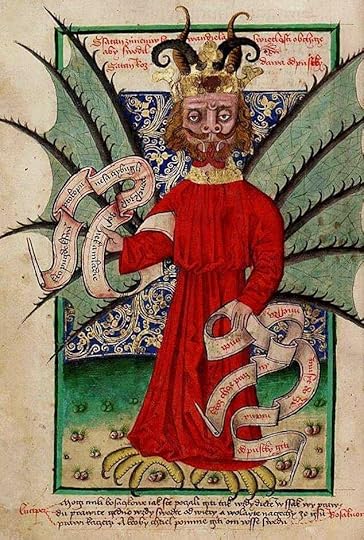
Unlike the previous furies, the fifth and sixth woes unleash an otherworldly specter, visible only to human imagination and corresponding to no earthly reality. When the fifth and six angels blast their trumpets, the Seer sees locust-like creatures and a calvary of horses with men’s faces and women’s hair. John sees a star fall from heaven to the abyss. From the abyss, thick smoke envelopes the whole creation such that the world is shrouded in deep and stubborn darkness. The abyss is whence the locusts and scorpions and quasi-human calvary come and, together, they inflict upon the earth an anguish worse than death.
Once again in the Book of Revelation, the creatures are extraordinary, their attributes are arresting, and the details overwhelm with their minutiae.
Nevertheless!
We commit a fatal mistake if we take the world so described by Revelation as any other but our own.Remember, the Spirit of Jesus has caught John the Beloved Disciple up into heaven— yes— but the world the Seer is then given to see is our world as it appears from heaven’s vantage.
John sees our here as it looks from God’s there.The fifth and sixth angels do not open up an otherworldly, supernatural realm. John depicts the world with a prophet’s pictures and riddles rather than with a reporter’s who, what, when, and where. The Apocalypse is prophetic not journalistic, but— make no mistake— the Book of Revelation is every bit as realistic as the Washington Post. For instance, the Old Testament prophet Joel speaks of the Day of the Lord— the harbinger of God in judgment and wrath— as the arrival of an invading army of locusts. Thus, that John shows you a world swarmed by a legion of locusts means that, from heaven, John sees the earth in league with what Karl Barth calls “the lordless powers.”
The prophet puts it plainly at the end of this passage. The lordless powers’s lies are so seductive that captivity to them extends across humankind who, unawares, worship demons and, unrepentant, wreak destruction. In other words, the devil is not somewhere out there; he is legion.
Notice the first verse.John calls the star he.He goes by many names.
Peter calls him Lucifer. Paul calls him the Enemy. Jesus calls him the Father of Lies. But here he first appears like falling lightening. And he is handed over the key to the abyss whence the demons come.
John sees what Paul says, “Therefore God handed them over in the lusts of their hearts to impurity, to the degrading of their bodies among themselves.”
John sees what Paul says, “For this reason God handed them over to degrading passions.”
John sees what Paul says, “And since they did not see fit to acknowledge God, God handed them over to a debased mind and to things that should not be done…they not only do them but even applaud others who practice them.”
God handed them over.The Apocalypse reveals to whom we have been handed.Quite simply, John sees that Satan and his demons have been given license to afflict the inhabitants of the earth. Thus John’s prophetic picture and Paul’s apostolic proclamation are the same.
The Spirit of Jesus shows John nothing more mysterious than our monstrous world.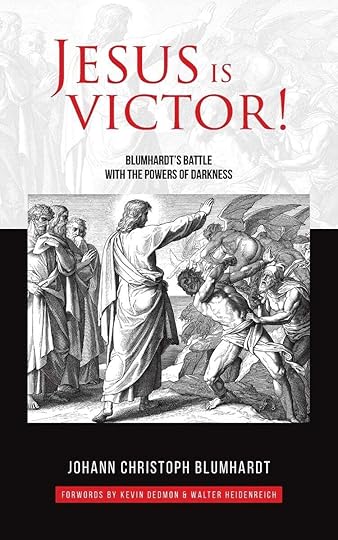
Starting out as a rookie preacher, Karl Barth struggled with translating the ancient, premodern world of the Bible for contemporary listeners. As happens with many preachers, seminary had nearly wrung the faith out of Barth, rendering the Bible as a text to be demythologized rather than declared.
However, when Barth discovered that all of his former professors had fallen under the Kaiser’s spell and signed an enthusiastic endorsement of Germany’s unprovoked war, Barth concluded the liberal theology they had handed over to him was rotten at the core. He immediately set upon the task of rebuilding his faith from the ground up.
Around the same time, while Barth was attending his brother’s wedding, he and a friend traveled a short distance to the town of Bad Boll in order to meet Christoph Blumhardt, a young pastor whose father, Johann Blumhardt, had, some years earlier, exorcised a demon from a young woman in his parish. The exorcism had sparked a revival in southern Germany.
The young woman’s name was Gottlieben Dittus.
She lived with her two sisters and brother in a ramshackle basement apartment. The was cheap because not only was the plaster peeling and the paint fading, the walls themselves knocked and creaked uncontrollably. Soon Gottlieben started hearing other noises, shuffling feet and scampering in between the walls. Next she began seeing things, shapes and light. One day she started speaking in voices not her own.
The sisters of Gottlieben Dittus reached out to the pastor for help. Pastor Blumhardt was every bit the modern man. So Blumhardt followed the science. He sought out doctors and treatments and medicines. Weeks went by as neighbors began complaining about the noise emerging from the sisters’s apartment. Gottlieben was now speaking in the voice of the deceased former owner of the house, who led Blumhardt to discover bones buried under the floorboards and bodies in the adjacent field. Despite his modern prejudices and secular superstitions, Johann Blumhardt eventually became convinced that what was holding the young woman hostage was, in fact, a minion of the one the prophet John sees falling as a star, a star who clutches the keys of hell.
One night, three months in to the ordeal, as Gottlieben fell into another demonic trance, Blumhardt took her hand and shouted into her ear:
“Place your hands together and pray, ‘Lord Jesus, help me!’ We have seen long enough what the devil can do; now we desire to see also what God can do.”
It was a moment like that one, only months later, that the demon finally left her. Gottliebin cried out in a strange voice, loud enough for the neighbors to hear, “Jesus is victor!” The demon left her— that little word felled him.
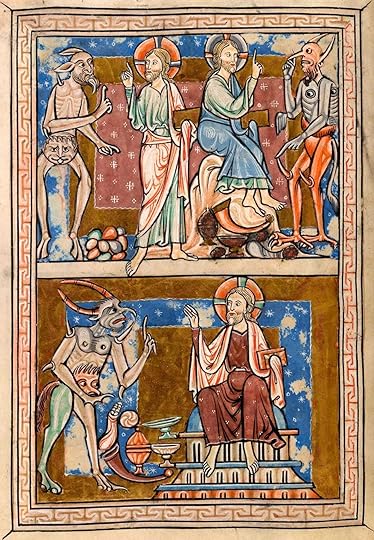 The Bible refuses to acknowledge that our “real” world deserves the adjective.
The Bible refuses to acknowledge that our “real” world deserves the adjective.Just as we cannot speak Christian by eliminating the word angel from our vocabulary neither can we preach the gospel without explicit reference to God’s opponent.
Christianity just is a struggle with a personified Liar.As the epistle of John candidly puts it, “The reason the Son of God appeared was to destroy the works of the devil.” For Martin Luther, for example, it was always clear there was a devil, but it took him a long time to understand how thoroughly the devil is indeed ruler of this world. But to arrive at agreement with Luther we need not the prophet John’s dense, disorienting imagery.
The Christian tradition’s thinking on the devil is astonishingly simple and elegantly logical.
There is evil and deceit.
There is God.
Thus, that there is a devil is an assertion which is imposed by the affirmation that there is God.
As Robert Jenson writes:
“It is confronting these two facts with each other rigorously and strenuously that eventually compels one to think of evil as person.”
Given the existence of evil as person, the Christian tradition has ventured ground rules for thinking of him.
The tradition’s first rule for dwelling on the devil is that we should seldom do so lest we forget his defeat is already won. “The very thing which the demons are waiting for,” Karl Barth writes, “is that we should find them dreadfully interesting and give them our attention.” The first rule for thinking about the devil is don’t.
The second rule to remember is that the devil and his demons are not divine. They are anti-divine; such that, it is incoherent to pair them with God’s ambassadors. They are not like white and black chess pieces. Between angels and demons there is no common denominator.
Thirdly, they are not divine but neither are they creaturely. No wonder the prophet John illustrates them as locusts and scorpions and a quasi-human calvary.
How else do you depict an agency that is not creaturely? The devil and his minions— they are not creatures. They have neither horns nor pitchforks. They are not creatures. Because God did not make them. They originate in Nothingness. They are born from the world’s resistance to the grace of God. They consist nowhere, says Barth, yet they are always on the march, always invading, always attacking. The devil and his minions are not creatures. God did not make them; therefore, they have no substance, no form, no bodies They are spirit with no self.
As Robert Jenson puts it, they are “protean in their emptiness.” This is why they must objectify another— possess them— in order to appear in and act upon the world. They have neither form nor substance of their own.
This leads to the fourth rule for dwelling upon the devil and his demons. Because they have neither substance nor self, they always speak in the voice of someone else. Satan speaks always in the voice of someone else. Satan’s voice is always the voice of another, “the voice of my conscience or of my friend or of my society.”
That Satan always speaks in another’s voice yields the final rule thinking of him. Because the devil and his demons can only wear another as a mask, they are essentially deceitful and they lie primarily by masquerading as the good. As Barth writes, the devil is falsehood “and demons are it’s exponents, the powers of falsehood in a thousand different forms.”

After the Russian army fled Bucha, Vladimir Putin compounded his big lie. “Two weeks after the first Bucha revelations,” Cathy Young writes in her Bulwark piece, “Putin issued a decree recognizing the “heroism and bravery” of the 64th Motorized Rifle Brigade—the very unit Ukrainian authorities had named as responsible for the bulk of the Bucha murders.”
The devil was not somewhere out there but here.Years ago, I met with a young couple about baptizing their baby girl.
They weren’t really church goers but I was sufficiently fearful of the baby girl’s grandmother that I could not refuse them.
Nevertheless, I decided to mess with them.
I explained the nature of the sacrament to the parents, as I always do, but this time— just because they had rubbed my nose in the grandma’s power over me— I said, “You know, essentially, baptism is a visible word of exorcism.”
“I thought we were, like, dedicating her to God?” the grandma’s son said.
“Dedication? Nope. It’s a visible word of exorcism. The church inherited the practice of exorcism from Judaism.”
Baptism is a visible word of exorcism.
They both looked suddenly queasy.
“You mean, like, demons? Like the devil?” the mother asked looking down at her bundled baby girl.
“Yep,” I nodded, “The question the liturgy has me ask you is about “the spiritual forces of wickedness” and “the evil powers of this world,” but that’s a modern reduction. Until relatively recently, the question was more straightforward, “Do you renounce Satan and all his pomps?” Nowadays most liturgies omit explicit mention of exorcism at baptism but when I put my hands on her, anoint with her oil, and make the sign of the cross over her that’s what we’re doing, an exorcism. We’re gifting her the Holy Spirit and giving his opponent the boot.”
They both said nothing.
They both looked disturbed and tight-sphinctered.
And they both jumped when their baby girl suddenly gurgled.
So I kept talking, “Martin Luther, in his baptism service— when he translated everything into language folks could understand— had the preacher say, “I adjure you, unclean spirit, in the name of the Father, Son, and Holy Spirit.”
“Wait,” the baby girl’s dad said, “You’re suggesting our daughter has an unclean spirit?”
“Most likely,” I answered deadpan, “If you doubt me, wait until she’s in the seventh grade and see for yourself.”
They didn’t laugh.
So I kept talking, “God’s relation to us is determined by rebellion. Just so, there are unclean spirits everywhere. And demonic spirits have no substance, which means they don’t have bodies of their own so…” and I looked down at their baby girl and just left the sentence dangle in front of them.
Just then the baby girl’s dad picked his daughter up and held her out from him like she had a dirty diaper or a dangerous contagion.
“Can we do it now?” he asked me, “the baptism. Can you do it now.”
“But your mother, her grandmother…” I said.
“I don’t care. All of a sudden I’m less scared of her.”
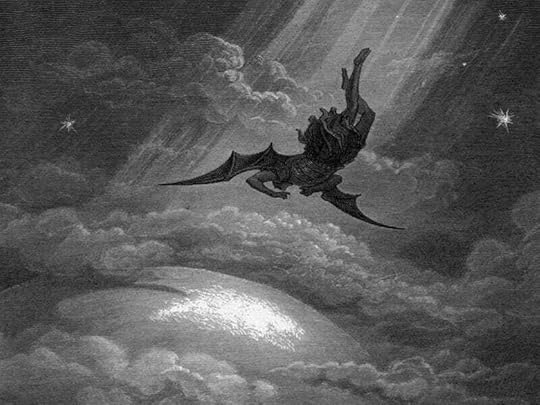
“There are demons everywhere,” I had said to them. But I didn’t say what John sees from heaven; namely, the Lord inscrutably permits their parasitic darkness. The star is handed over the key to the abyss.
The Apocalypse is such a difficult book because it stretches the paradox of the Bible’s faith to the breaking point:“My God is so big, so strong and so mighty. There’s nothing my God cannot do,” I used to teach the children to sing at summer camp.And yet, “The devil was not somewhere out there but here.”
On the one hand, God is absolutely sovereign; nothing can thwart his ultimate will. At its most basic, this is the point of the book.
On the other hand, the predations of God’s Enemy nevertheless fall within the sway of that sovereignty. “One little word [of God] can fell them,” the hymn sings rightly. And yet, there is evil.
Thus, despite the kinetic imagery of the Book of Revelation, to think of the devil and his demons is not to lose oneself in the otherworldly. It is to consider history as such. It’s to confront the here and now in all its banal and horrific monstrosity and to ask why God takes such a long roundabout way to accomplish his stated objectives.
Why God? Why permit the fall? Why allow the long history of Sin and Death as an enormously painful and terrifically crooked road to your goal of showing mercy? Given how utterly in control you are in the Bible, God, why not just do it?

In Cormac McCarthy’s novel Blood Meridian, the antagonist called only the Judge is a malevolent, demonic character. At one point in the violent story, the Judge asks with malicious wit:
“If God meant to interfere in the degeneracy of mankind, would he not have done so by now?”
The audacious, offensive announcement of the gospel is that God has precisely done so, by submitting to it and, just so, overcoming it. Of course, the claim that God has precisely and permanently undone the devil and all his pomps sounds like cold comfort in a world overrun with demons.
And it is if time simply marches forward in wooden fashion. How could anyone’s death in the year 30— how could their resurrection even— undo the darkness that seems to shroud the world two millennia later? But time, in the strange new world of scripture, is neither linear nor cynical.
Time is neither linear nor cyclical.
Time, according to the biblical narrative, is a helix— like a spiral staircase.And what it wraps around, equally and in every place, is the risen Christ.“Before Abraham was, I am,” Jesus says in the Gospel of John. Therefore, every sad place is as near to its redemption as Mary clutching Jesus in the garden. This is why, despite what John sees in Revelation 9, we say at every funeral that Jesus holds the keys of hell and death.
The ancient church father Maximus the Confessor writes:
Maximus means exactly this, that time is a helix that spirals around the crucified and the risen Christ.And therefore the devil and his demons yet advance in the world but already they are defeated.“The one who knows the mystery of the cross and the tomb knows the reasons of things. Those who are baptized into Christ’s death and say “Amen” to the Eucharist’s prayers and behold the fraction of the bread that is Christ’s body know the goodness of creation as it is plotted by Christ.”
Maximus acknowledges that the Bible’s paradox (On the hand, there is God. On the other hand, there is evil.) cannot be resolved from the conceptual outside. It can only be liturgically inhabited. Just so, until the End, we have no answer to the world’s darkness other than the invitation, “Come to the table.”
August 19, 2023
In Hell There is Everything But Mercy
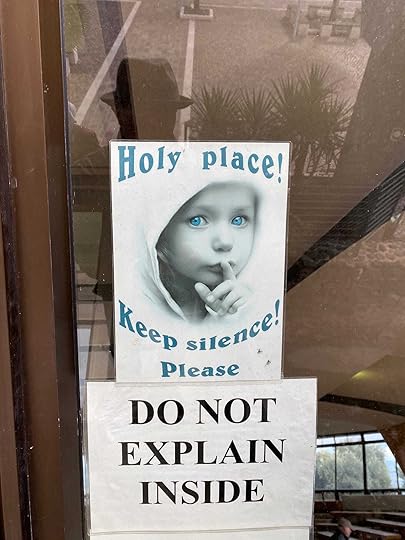
Tamed Cynic is a reader-supported publication. To receive new posts and all content, consider becoming a paid subscriber.
I’m preaching on the ninth chapter of Revelation this Sunday whose first verse is the book’s introduction of the figure of the devil. The text brought to mind this passage from Thomas Merton.
August 18, 2023
Seven Secrets of the Spirit-Filled Life

Tamed Cynic is a reader-supported publication. To receive new posts and all content, consider becoming a paid subscriber.
Here is a recent conversation I had with my friend Jack Levison.
Jack (PhD, Duke University; MA, Cambridge University; BA, Wheaton College) is an internationally acclaimed scholar and award-winning author. He holds the W. J. A. Power …
August 17, 2023
What Does Heaven Feel Like?
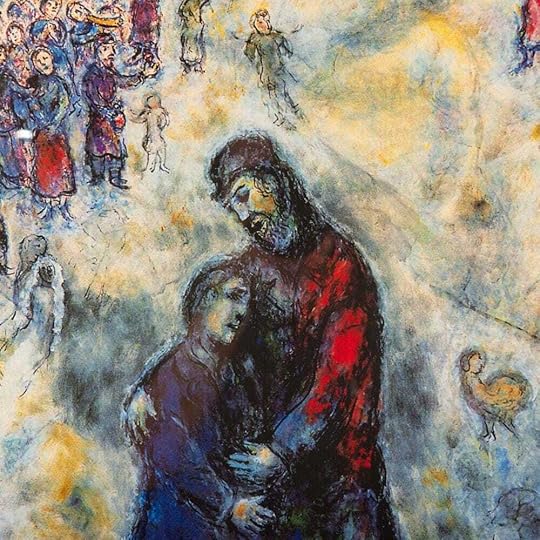
Tamed Cynic is a reader-supported publication. To receive new posts and all content, consider becoming a paid subscriber.
I’m in the midst of a sermon series and an online class on the Book of Revelation; consequently, I have the Last Things on my mind.
Scripture most often sketches the Fulfillment with pictures, images that are as much riddles as they are illustrations.
Jesus, in Luke’s Gospel, compares heaven to an upside down wedding banquet to which all motley manner of people will come from east and west, north and south. There, Matthew’s Gospel adds, the Bridegroom’s guests will recline at the table with such A-list guests as Father Abraham, his son Laughter, and Laughter’s son Heel-Grabber. In the Apocalypse to John, the Spirit of Jesus gives the Seer to see the New Jerusalem as an impossibly proportioned Holy of Holies— a City with permanently idle gates through which pagan kings come to and fro in a commerce that the kingdom come has somehow not concluded. Before breaking the news of his cruciform departure, Jesus promises his disciples that he goes to prepare a place for them in his Father’s house, an everlasting domicile with mansions many enough to accommodate the entire multitude of those who make up his risen body.
An Almighty McMansion.
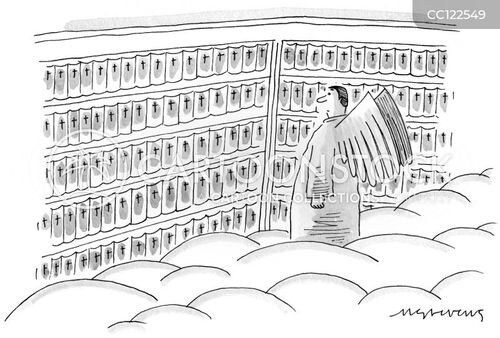
And if scripture is coy about what heaven’s appearance, then it is nevertheless consistent on its aurality.
The End, the Bible attests again and again, is music:
Praise God in his sanctuary; praise him in his mighty heavens. Praise him for his acts of power; praise him for his surpassing greatness. Praise him with the sounding of the trumpet, praise him with the harp and lyre, praise him with timbrel and dancing, praise him with the strings and pipe, praise him with the clash of cymbals, praise him with resounding cymbals. Let everything that has breath praise the Lord.
— Psalm 150
The company of heaven, the Seer hears, sing a perpetual profession:
“Worthy are You, our Lord and our God, to receive glory and honor and power; for you created all things, and because of your will they existed and they were created.”
— Revelation 4
Just so—
Scripture lets us glimpse what heaven looks like. And the Bible shows us what heaven sounds like.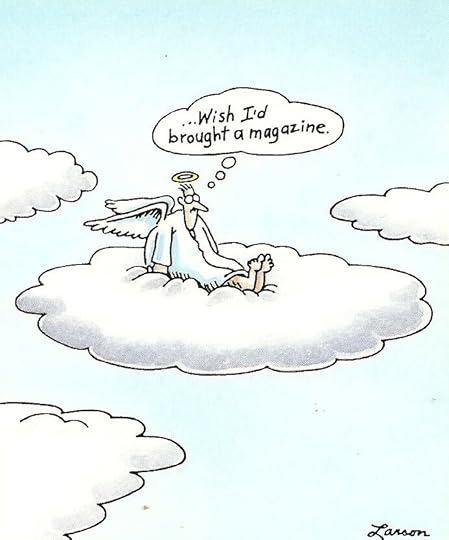
But the partial and puzzling impressions the Bible offers of the Fulfillment often fail to fulfill even our most modest hopes. They provoke not joyous anticipation or insatiable desire but dread and disquietude. It’s one thing to lean into poetry like, “The End is music,” but it’s quite another matter to contemplate an eternity of unending— if perfected— choir practice. I recoil even at the recorded sound of my preaching voice. And if the coming Kingdom is bereft of carnal pleasures— why else is the Song of Songs in there— then count me out. Harp music doesn’t rate high on this aeon’s Spotify so why should the life to come conscript us all into an ethereal garage band of nothing but lyres? Surely the Lord does not require all the saints, their robes washed white in the blood of the Lamb, to darn the wings of his angels. Surely the world to come has a better business model.
Heaven, as sheer duration, is the very definition of Hell.August 16, 2023
Seeing Voices

Tamed Cynic is a reader-supported publication. To receive new posts and all content, consider becoming a paid subscriber.
In his book, Against the Heresies, the church father Irenaeus of Lyons describes scripture generally and the last book of the Bible especially with this analogy:
“Scripture is like a great mosaic depicting a handsome king. It is as if we were owners of a villa in Gaul who had ordered a mosaic from Rome. It arrives, and the beautifully colored tiles need to be taken out of their packaging and put into proper order according to the plan of the artist. The difficulty, of course, is that Scripture provides us with the individual pieces, but the order and sequence of various elements are not obvious.”
Over the coming weeks my teammates and I hope to help you make sense of the mosaic that is the Apocalypse.
Here is the video recording from our first session. I will add future sessions here as well. If you’d like to sign up to join us on Monday nights you can do so HERE.
August 15, 2023
The Lord Desires to Save All
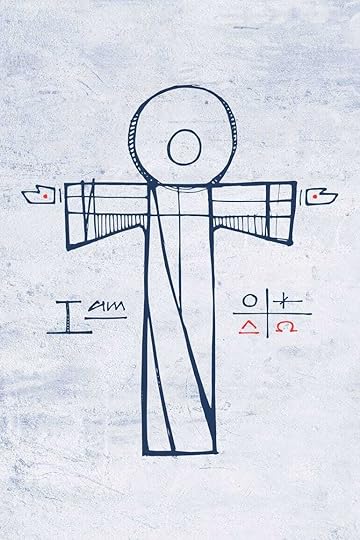
Tamed Cynic is a reader-supported publication. To receive new posts and all content, consider becoming a paid subscriber.
Romans 11
The lectionary epistle reading for this Sunday comes from Romans 11. Earlier at the crest of the letter Paul asked, “What then are we to say about these things? If God is for us, who is against us?” For Paul, it’s not a rhetorical question. For Paul, it’s a question at the beating heart of the Bible.
If God is for us— all of us— if God is determined to reconcile and redeem all of us, then what could stand in God’s way? “What can separate us from the love of God in Christ Jesus our Lord?” the apostle asks. And then, one by one, Paul proceeds to eliminate the possibilities. Except, the Apostle Paul does leave one possibility off his list; see if you can spot it:
Hardship
Injustice
Persecution
Famine
Nakedness
Peril
War
Death
Rulers
Powers
Notice there is one possibility missing from Paul’s list, one potential dis-qualifier lingers still.
You.
Can you finally separate yourself from the love of God?
Can I?
Have we been made with the ability to sever ourselves forever from the love of our Maker? If Injustice and Persecution and War can’t leave our ledgers permanently in the red, can our Refusal?
Do sinners possess the stubborn strength to fight God to an everlasting draw? Can we separate us ourselves from the love of God in Christ Jesus our Lord?
On the one hand, it appears we are able.
After all, scripture is unwavering in the sole qualification for salvation.
“Christ is the end of the law of righteousness,” the Bible says, “for everyone who believes.” “If you confess with your mouth that Jesus Christ is Lord,” says scripture, “and believe in your heart that God raised him from the dead, you will be saved.” The bar is the same in the Old Testament too. The Book of Joel says quite clearly, “Everyone who calls on the name of the Lord [in faith] will be saved.”
Can we separate us ourselves from the love of God? On the hand, it certainly seems so, for unfaith abounds.
On the other hand, though, Paul insists that the word of God cannot fail.“My word will not return to me void,” the Lord tells the prophet Isaiah. The word of God can only work what it says, do what it decrees, accomplish what it announces. And the word says clearly, the Lord’s not content with just you and you and you. God wants all of you.
For the apostle Paul, this question is no theological abstraction.
The reason that famous passage in Romans is so impassioned is because Paul is agonizing over the fact of Israel’s unfaith.
The God of Israel has raised his eternal Son from the dead, yet the Israel of God believes not these tidings.
August 14, 2023
Food and Faith
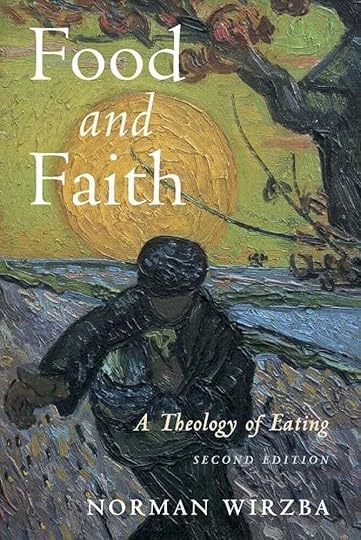
Tamed Cynic is a reader-supported publication. To receive new posts and all content, consider becoming a paid subscriber.
In the gospel lection for this coming Sunday, Jesus dishes on what we put in our mouths and stomachs:
Then he called the crowd to him and said to them, "Listen and understand: it is not what goes into the mouth that defiles a person, but it is what comes out of the mouth that defiles." Then the disciples approached and said to him, "Do you know that the Pharisees took offense when they heard what you said?"He answered, "Every plant that my heavenly Father has not planted will be uprooted. Let them alone; they are blind guides of the blind. And if one blind person guides another, both will fall into a pit." But Peter said to him, "Explain this parable to us." Then he said, "Are you also still without understanding? Do you not see that whatever goes into the mouth enters the stomach, and goes out into the sewer? But what comes out of the mouth proceeds from the heart, and this is what defiles. For out of the heart come evil intentions, murder, adultery, fornication, theft, false witness, slander. These are what defile a person, but to eat with unwashed hands does not defile."
— Matthew 15
On the subject of plants and mouths, bellies and defilements, here is a video from the vault of a conversation I had with Dr. Norman Wirzba of Duke University on his book Food and Faith: A Theology of Eating.
August 13, 2023
Where Eternity Clips Time

Tamed Cynic is a reader-supported publication. To receive new posts and all content, consider becoming a paid subscriber.
Revelation 8.1-13
In his memoir, Accidental Preacher, Will Willimon divulges few details about his “Daddy,” whom he knew little and seldom saw. The elder Willimon was a scoundrel in a small Southern town. A conman and a convict, Will grew up knowing his father as little more than as a source of shame for his family. In one of his first appointments as a young pastor, Will was about to lead his dysfunctional congregation’s nativity worship when he learned of his father’s death.
Will writes:
“My I was appointed pastor to a forlorn congregation that was planted by Buncombe Street Church when I was a child. By then my father had shown up in town once or twice, unannounced. We met for coffee, but [my wife] and I told neither [our daughter] nor [our son] about their long-gone grandfather because it seemed a dishonor to Mother. As my father was dying of cancer, visiting us was his way of “settling my debts”—an absurd supposition for a man who owed everybody. How, in God’s name, was he going to repay me? We would look ridiculous, a dying old man and his middle-aged son at last attending the Boy Scout Father-Son Banquet.
It was Christmas Eve 1981. Northside United Methodist Church had a rough ride the years prior to my arrival as their new pastor. Things were so bad they found neither the funds nor the enthusiasm even for a Christmas service the previous year. The dispirited congregation needed one undeniable success. Even if I singlehandedly had to mold the candles, grow the poinsettias, and falsetto-croon “O Holy Night,” by God my first Northside Christmas would be a candlelight extravaganza of Yuletide emotion. As I was putting the finishing touches on my sermon for that night’s service, my brother Bud called.
“Daddy just died.”
The father I barely knew selects that night—my biggest night at my new church—for his exit, this time leaving for good. As we drove to church that night, I was ashamed of my lack of response. Though I tried to lament the tragedy of it all, my grief was no greater than that of a kid staring at a speckled hound at the bottom of the dry well.
We hurried into church. I put on my robe, pulled tight the cincture, directed the candles to be lit, and formed the choir for the introit.
That Christmas Eve at sad Northside, as at many other times and churches, I practiced the art of pastoral repression in service to my vocation. I stood up and played the preacher. Don’t accuse me of deceit or denial—that night I was almost grateful for having something to pray over other than myself, pleased that baptism had given me a church family more messed up than my own, glad that a pregnant virgin is more newsworthy than a son unable properly to grieve the death of a failure at fatherhood.
There was only me to say the divine words they couldn’t say to themselves. Somebody’s got to deliver the news, the good news for all who dwell in the land of darkness, whether it be east of Eden or on the north side of Greenville. And wonder above wonders, in a dejected little church that nobody has heard of on ironically named Summit Drive in Greenville, damn South Carolina, with an emotionally inept preacher without even the grace to mourn his departed thief of a father, God with Us.”
God is so determined to be with us, Will writes, the angels carried me that night through the worship of their Lord.
The year his father died, the introit for the nativity service was not what Will had preferred, “In the Bleak Midwinter,” but “O Come, All Ye Faithful.”
“O come and behold Him, born the King of Angels…”
“O sing, choirs of angels…”

The King’s angels do more than sing.
The interlude between the sixth and seventh seals, with its vision of the victorious saints clothed in robes washed white by the blood of the lamb, offered a respite from the unrelenting torrent of judgment unleashed by the four horsemen of the apocalypse. In place of the world torn asunder, chapter seven showed the church triumphant. In place of the terrors of history, the interlude provided a glimpse of the future’s Fulfillment.
But the reprieve from judgment was only temporary.
The interlude ends.
The Lamb opens the last seal and Revelation resumes its “controlled descent into chaos.”
And what happens initially when the Lamb unseals the final seal is anticlimactic. There is neither horse nor rider. There are no peals of thunder. There is not a cacophony of cataclysm.
There is only silence…
“There was silence in heaven,” the Seer hears, “for about half an hour.”
As Bonhoeffer writes:
“The proclamation of Christ is the church speaking from a proper silence.”
Since Christ is not only the agent who opens the seal but the revelation it contains, at first, among all the creatures of heaven, there is nothing but silence.
And then…angels.
The Seer sees seven angels gifted seven trumpets. The Seer sees still another angel, armed with a golden censor, mixing a multitude of incense with the prayers of the saints on earth; so that, they might bend the ear of the Lord in heaven. Just as Ezekiel saw, the Seer sees the angel fling fire upon the earth from heaven’s altar, wreaking thunder and lightening and earthquakes. And then the Seer sees four of the seven angels blast their trumpets, each in turn, each letting slip the Lord’s unmaking of the world.
The vision ends with an eagle crying with a loud voice “woe.” Like Jesus does in the Sermon on the Plain, the eagle cries loudly “woe.” The eagle attests that he cries “woe” because there are still more angels on the way.
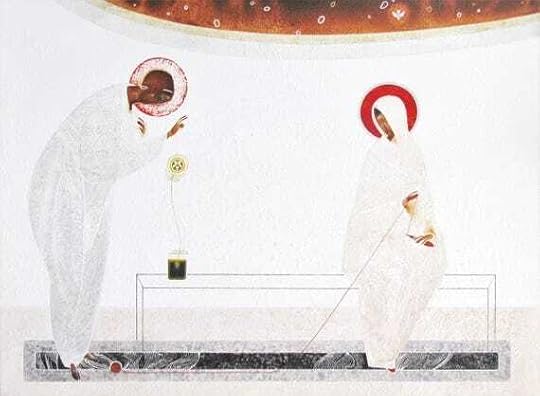
In a Christmas Eve sermon from 1972, Old Testament scholar Walter Brueggemann recalls how his ten year old son was tasked with writing a nativity play for his Sunday school class. The boy made it a dialogue between two of the friendly beasts at Bethlehem.
Donkey: It sure is cold, is it not?
Lamb: It sure is.
Donkey: Do you know what year it is?
Lamb: I think it is the year 1.
Donkey: Hey, there’s something in the sky.
Lamb: Is that not a star?
Donkey: Yes, there is something right by it. There are two of
them.
Lamb: Who is that over the hills?
Donkey: It looks like some people coming to get their taxes in
the books.
Lamb: But the inns are all full. Maybe they will come here,
huh?
Donkey: Here they come.
Lamb: Be nice to them, huh?
Donkey: She looks like she is going to have a baby!
Lamb; Hey, look over the hills. It looks like some kings.
Donkey: She’s having a baby—look, some angels.
Lamb: Gosh, some angels.
Much more so than any other book of the New Testament, the Apocalypse to John is “one long display of angels.” This is not surprising. Just as Revelation is an unveiling to John of heaven so too is it a glimpse of the creatures who habitate there. In fact, as the Apocalypse narrates commerce between heaven and earth, the Lord’s angels are its primary protagonists.
Angels are the active agents in the narrative.This makes the Book of Revelation in general and the seventh seal in particular as appropriate an occasion as any other to dwell on those creatures that Karl Barth calls “God’s ambassadors, the opponents of God’s opponents.”
Are we able to say anything more about them than, “Gosh, some angels?”John Page was both a Virginia statesman and a person of faith. During the American Revolution, he exchanged much correspondence with Thomas Jefferson who was also a Virginia statesman but was not a believer. In one of his letters to the future president, Colonel Page quoted from the Old Testament Book of Ecclesiastes, writing: “We know that the Race is not to the swift nor the Battle to the Strong. Do you not think an Angel rides in the Whirlwind and directs this storm?”
I wonder if John Page’s assertion embarrasses you as much as it likely embarrassed Mr. Jefferson. We sing about their singing at Christmas, but, otherwise, when it comes angels most believers do not appear to have much more to say than…silence. Our reticence to speak of angels (with anything more than sentimentality) aligns us with Jefferson, the Enlightenment skeptic, rather than Page, the Christian believer.
Yet, as Karl Barth insists, the angels are not like the March hare. “The angels,” Barth argues, “are not an absurdity or curiosity which we are at liberty to reinterpret, to deny, or to replace by curiosities of our own invention.” We can neither remove the angels from the gospel nor can we demythologize their role in its drama, for the glad tidings of the gospel begins with Gabriel’s announcement to Mary that she would bear God in the ark of her belly.
Thus Barth concludes:
Barth’s point is that the angels persist for us as a stubborn but redressing reminder that Christianity cannot be reduced to ethics.“The real question is not what we can make of angels. It is whether in our supposed Christian faith and proclamation we really have to do with the word of God attested in the Bible if we can easily ignore angels and regard them as superfluous, or cheerfully and confidently ask what we are to make of them. In other words…there may well be given here a confession of poverty in respect of our Christianity. We may be forced to admit that we have not really noted the word of God as it is really given. We may have to affirm that we have cause to regard not the angels but ourselves as superfluous and in need of correction.”
The gospel refuses to be watered down to good-deed-doing. If you deconstruct the faith such that the angels no longer play a necessary role, then you have, in fact, fashioned an idol. Inconveniently perhaps, the Jesus who teaches the golden rule is the same Jesus who was aided by the angels in the desert and the garden. Indeed we would not know Jesus lives with death behind him if an angel had not first told us the good news.
Angels appear all over the Bible. And they do more than sing on high, “sweetly o’er the plains.” So what are we able to say about them besides, “Gosh, some angels?” And what can I promise you on the basis of them?
Note how the first article of the creed begins.
“I believe in God the Father, the Almighty, maker…”
Maker of what?
Heaven and earth.
According to the dogma, heaven is created along with the earth, as earth’s “boundary by mystery.”God creates heaven when he creates the earth. Heaven is the space God makes in creation for himself. That is, heaven is not eternal. No wise different than the stars or the sea or aardvark, heaven is an item in God’s creative act, and the angels are the creatures made for that mode of God’s creation. Just as Sons of Adam and Daughters of Eve are creatures of the earth, the angels are creatures of God’s heaven.
They are creatures.
They are creatures like us. Except, the Risen Christ is “far above” them. And, as we will be made like him, in the Resurrection, we will be above the angels as well.
Angels are creatures.Thus, the first rule in defining angels is that we are not to relate to them religiously. We are not to put our faith in them.
Angels are servants.Scripture frames this second rule restrictively. Angels are creatures of God’s hand. Either they are God’s immediate and wholly dependent servants or they are evil. An “angel” with a will of his own is a demon.
Angels are immediate and immaterial.As the ancient church father John the Damascene puts it, though the angels’s “nature is graced with immortality,” they are “bodiless and immaterial” and so “changeable.” They exist, Barth writes, only in their coming and going, a coming and going that just is God’s will. Just so, they appear as God commands and requires.

I was struggling to prepare my first Christmas Eve sermon over twenty years ago. I confessed my troubles to a professor, “There’s angels all over the story. I don’t know what to do with it. It reads like a fairy tale so soon after the twin towers fell.”
“Fairy tale?” Dr. Jacks asked, “You have trouble believing in angels?”
He didn’t wait for any limp reply I might’ve mustered.
Instead he told about a winter day a few years earlier. Heavy snow fell as dusk settled over New England. He and his wife were driving to their daughter’s house to visit when their car broke down. Cell phones were not yet a ubiquitous device, and Dr. Jacks and his wife were both old, too old to be early adopters of cell phones and too old to sit for long in an idle car in single digit weather.
“I was sitting behind the wheel,” he said to me, “reassuring my wife that all would be fine while I wondered how long we could sit in the car or how far I would get walking in the snow with a cane in one hand and my wife on my other hand.”
I squinted at him and he leaned closer to me across the dining hall table.
“All of a sudden, like an answered prayer, this young couple pulled up alongside us in a station wagon— the kind with wood paneling on the sides— and offered us a ride.”
“You got in the car with complete strangers?!”
He nodded.
“Of course, I…” and his voice trailed away as he recalled the incident, “I just knew.”
“You think those two were angels?” I asked prematurely disgusted at his sloppy thinking and hasty conclusion.
“Wait,” he said, “I’m not finished with my story.”
He sat back up and smiled and laughed a slight, joyful laugh.
“Twenty minutes later,” he said, “they dropped us off at our daughter’s house. She looked around her property as we climbed up the steps of her big front porch. I turned around and waved at the couple who had saved us and my daughter said, with alarm in her voice, “Dad, who are you waving to?” I told her, “The couple in the station wagon who drove us the rest of the way.” And she said, “Dad, there’s no one there. Look, there’s not even any tracks in the snow.””
I just stared at him, a fat crumb from my sandwich hanging off my dumbfounded lips.
“Don’t ever mistake the story for a fairy tale,” he said, pointing his long, bony finger at me.
And then, before he got up to leave— I didn’t know it at the time— he quoted Auden:
“Nothing that is possible can save us.”
The seven angels that John sees with seven trumpets are the seven archangels of Judaism: Uriel, Raphael, Raguel, Michael, Sariel, Gabriel, and Remiel. Of the seven, only Gabriel and Michael otherwise appear in the New Testament; however, the fact all seven appear in the Apocalypse shows that they nevertheless remained a part of the ancient church’s mental furniture. Indeed it isn’t simply that the other five archangels don’t appear in the New Testament angels themselves have a narrow role in the New Testament.
Angels appear in discrete moments in the Gospels. Angels appear at particular points in the Book of Acts. And angels appear all over the Apocalypse but not so the remainder of the New Testament.
In the rest of the New Testament, angels appear only at precarious moments.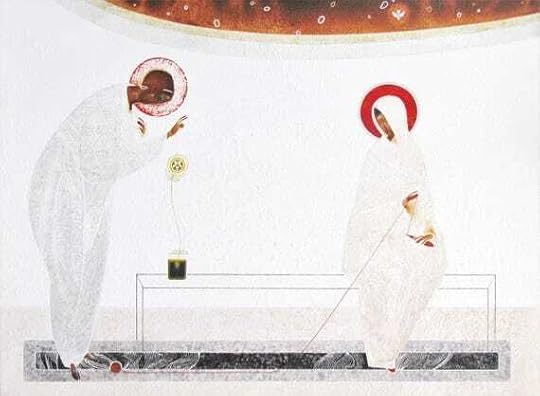
A decade ago, the NYTimes featured an interview with a Polish director named Agnieska Holland. At the time, Holland was promoting her new film, In Darkness, which had been nominated for an Oscar for Best Foreign Film.
The plot of In Darkness concerns a Polish sewer worker (and part-time thief) who takes it upon himself to hide Jews in the sewer during the Nazi era. Holland had previously directed the movie Europa, Europa. The reporter asked her why
she had decided to do another Holocaust movie, having allegedly sworn off the theme.
She changed her mind when it came to In Darkness, she said, “The main character, this Polish guy, was ambiguous. What was interesting was not the mystery that people can be terrible. Humanity has a tendency to be terrible. What intrigues me is that in those circumstances [the extremity of life in Poland under Nazi occupation] somebody acts in a good way who doesn’t have deep reasons to do so.”
The movie maker called the sewage worker a mystery.
The Bible gives us a synonym for mystery.
God raised Jesus into the eschatological future— the Future. As the place where the risen Christ sits at the Father’s right hand, heaven is future.
Heaven is the created future’s presence— as future— with God.In heaven, the future is present for God. This is ungraspable for us. For John of Patmos, it is glimpse-able only in images and sounds and riddles.
Pay attention now:
If heaven is the future Fulfillment into which the risen Christ ascended, then angels are instances of the triune God reaching into the present— from that future— to pull history towards the End that God desires.
Angels are events of God tweaking the plot of the story he is making with us. Angels are happenings of authorial intrusion. Angels are those points where eternity clips time.To get the story back on track, God sends angels.Thus, the world is not a machine.
It is creation.
And from one part of creation to another, from heaven to earth, God, with his angels, can move to and fro. But the Lord does so, the New Testament suggests, only sparingly. Outside the Apocalypse, there aren’t that many angelic instances in the New Testament.
Angels appear only at what Robert Jenson calls “ontologically perilous junctures.”They show up at the conception and the birth of the human-who-is-God, at the resurrection when his identity is revealed, and at a few points in between when “deity might have been broken.” Likewise, they show up in Acts at critical moments in the life of the fledgling church.
Ontologically perilous junctures.
They only show up in moments that matter for the End God has in mind. They show up to steer the present towards the Future where Jesus lives with death behind him.This is remarkable.
Because the Lord’s angels not only showed up that Christmas Eve on Summit Drive the night Will learned his father had died, they show up here, in this place, every Sunday, occasioned by bread and wine. The table attests to it: “Therefore we praise you, joining our voices with Angels and Archangels and with all the company of heaven, who for ever sing this hymn,” we say, “Holy, Holy, Holy Lord, God of power and might, heaven and earth are full of your glory.”
Ontologically perilous junctures.
And yet, here and now.
And always.
In other words—
God acts as though the whole universe is riding on placing himself in your hands and on your lips and you saying, “Amen. Thanks be to God.”
August 11, 2023
Hitmen and Midwives
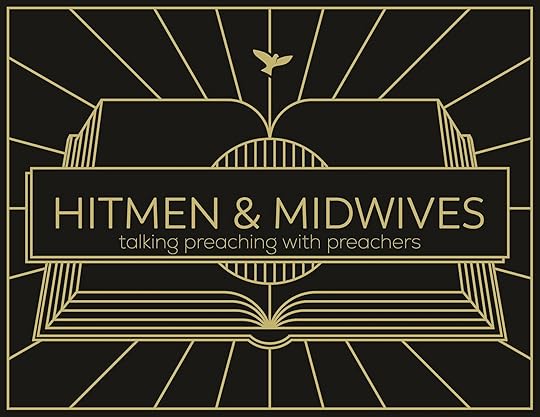
Tamed Cynic is a reader-supported publication. To receive new posts and all content, consider becoming a paid subscriber.
Here is the latest installment of my series talking preaching with preachers (or those who suffer them). My friend Ken Jones is back from a summer hiatus to talk about #7 of our 9.5 Theses on Preaching.
Here’s Thesis 7:
Preachers who s…
Jason Micheli's Blog
- Jason Micheli's profile
- 13 followers



